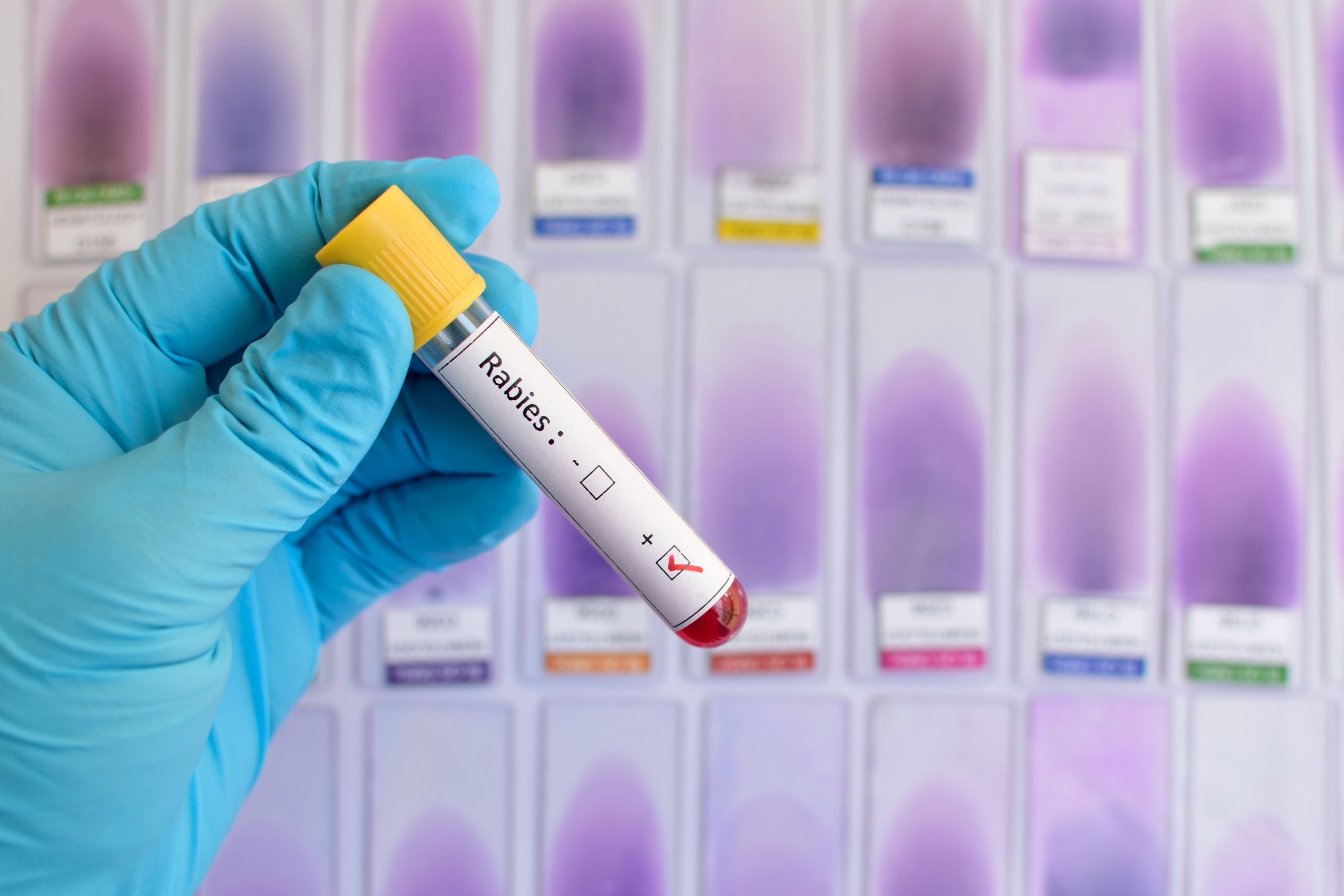Fox in Angola Area Tests Positive for Rabies
Delaware Health and Social Services | Division of Public Health | News | Date Posted: Friday, June 29, 2018
Delaware Health and Social Services | Division of Public Health | News | Date Posted: Friday, June 29, 2018

Delaware’s Division of Public Health (DPH) is warning Sussex County residents who live in the residential area of Camp Arrowhead Road between Marsh Island Golf Club and Angola Road of a positive case of rabies in a fox that bit a human and a dog earlier this week. The fox was captured and brought to the DPH Lab, where test results on Tuesday, June 26, 2018, confirmed it had rabies. The victim and the victim’s dog were taking a walk in the area when the fox approached them and bit them. The individual has begun treatment for rabies exposure. In addition, the victim’s dog, which was up to date on its rabies vaccinations, is currently under quarantine following exposure.

Anyone in this area who thinks they might have been bitten, scratched or come in contact with the rabid fox should immediately contact their health care provider or call the DPH Rabies Program at 302-744-4995. An epidemiologist is available 24/7. Anyone who thinks their pet may have been bitten by this fox should call their private veterinarian or the Delaware Department of Agriculture (DDA) at 302-698-4630.
Since Jan. 1, 2018, the Division of Public Health (DPH) has performed rabies tests on 68 animals, eight of which were confirmed to be rabid, including two foxes (including this one), two raccoons, one sheep, one cat, and two dogs. In 2017, DPH performed rabies tests on 143 animals, 16 of which were confirmed to be rabid, including five raccoons, six cats, two dogs, two bats and one fox. DPH only announces those rabies cases for which it is possible the animal had unknown contacts with humans and there is a risk of exposure to the community.
Rabies in humans and animals cannot be cured once symptoms appear. If the animal is of unknown origin, or unavailable to be quarantined or tested, DPH recommends that people receive post-exposure prophylaxis (PEP) treatment, a series of four vaccinations, as a precautionary measure.
Rabies is an infectious disease affecting the nervous system of humans and other mammals. Infection can occur through the bite or scratch of an infected animal or if saliva from such an animal gets into the eyes, nose, mouth, or an opening in the skin.
Fortunately, rabies is also almost completely preventable. DPH recommends that members of the public take the necessary steps to stay clear of exposure to rabies. Rabies prevention begins with the animal owner. Vaccination of pets and livestock is a crucial factor in rabies prevention.
• All dogs, cats, and ferrets 6 months of age and older are required by Delaware law to be vaccinated against rabies by a licensed veterinarian. Consider vaccinating livestock and horses as well. It is recommended to consult with your private veterinarian if you have any questions regarding whether your animal(s) should be vaccinated against rabies.
• Pet owners can reduce the possibility of pets being exposed to rabies by not letting them roam free.
• Spaying or neutering your pet may reduce the tendency to roam or fight and, thus, reduce the chance they will be exposed to rabies.
• Do not keep your pet’s food or water outdoors; bowls can attract wild and stray animals.
• Keep your garbage securely covered.
• Do not touch or otherwise handle unfamiliar animals, including cats and dogs, even if they appear friendly.
For more information on the DPH rabies program, visit http://www.dhss.delaware.gov/dhss/dph/dpc/rabies.html or call 1-866-972-9705 or 302-744-4995. For more information on rabies, visit the Centers for Disease Control and Prevention at http://www.cdc.gov/rabies/.
A person who is deaf, hard-of-hearing, deaf-blind or speech-disabled can call the DPH phone number above by using TTY services. Dial 7-1-1 or 800-232-5460 to type your conversation to a relay operator, who reads your conversation to a hearing person at DPH. The relay operator types the hearing person’s spoken words back to the TTY user. To learn more about TTY availability in Delaware, visit http://delawarerelay.com.
Delaware Health and Social Services is committed to improving the quality of the lives of Delaware’s citizens by promoting health and well-being, fostering self-sufficiency, and protecting vulnerable populations. DPH, a division of DHSS, urges Delawareans to make healthier choices with the 5-2-1 Almost None campaign: eat 5 or more fruits and vegetables each day, have no more than 2 hours of recreational screen time each day (includes TV, computer, gaming), get 1 or more hours of physical activity each day, and drink almost no sugary beverages.
Related Topics: public health, rabies, Sussex County
Keep up to date by receiving a daily digest email, around noon, of current news release posts from state agencies on news.delaware.gov.
Here you can subscribe to future news updates.
Delaware Health and Social Services | Division of Public Health | News | Date Posted: Friday, June 29, 2018

Delaware’s Division of Public Health (DPH) is warning Sussex County residents who live in the residential area of Camp Arrowhead Road between Marsh Island Golf Club and Angola Road of a positive case of rabies in a fox that bit a human and a dog earlier this week. The fox was captured and brought to the DPH Lab, where test results on Tuesday, June 26, 2018, confirmed it had rabies. The victim and the victim’s dog were taking a walk in the area when the fox approached them and bit them. The individual has begun treatment for rabies exposure. In addition, the victim’s dog, which was up to date on its rabies vaccinations, is currently under quarantine following exposure.

Anyone in this area who thinks they might have been bitten, scratched or come in contact with the rabid fox should immediately contact their health care provider or call the DPH Rabies Program at 302-744-4995. An epidemiologist is available 24/7. Anyone who thinks their pet may have been bitten by this fox should call their private veterinarian or the Delaware Department of Agriculture (DDA) at 302-698-4630.
Since Jan. 1, 2018, the Division of Public Health (DPH) has performed rabies tests on 68 animals, eight of which were confirmed to be rabid, including two foxes (including this one), two raccoons, one sheep, one cat, and two dogs. In 2017, DPH performed rabies tests on 143 animals, 16 of which were confirmed to be rabid, including five raccoons, six cats, two dogs, two bats and one fox. DPH only announces those rabies cases for which it is possible the animal had unknown contacts with humans and there is a risk of exposure to the community.
Rabies in humans and animals cannot be cured once symptoms appear. If the animal is of unknown origin, or unavailable to be quarantined or tested, DPH recommends that people receive post-exposure prophylaxis (PEP) treatment, a series of four vaccinations, as a precautionary measure.
Rabies is an infectious disease affecting the nervous system of humans and other mammals. Infection can occur through the bite or scratch of an infected animal or if saliva from such an animal gets into the eyes, nose, mouth, or an opening in the skin.
Fortunately, rabies is also almost completely preventable. DPH recommends that members of the public take the necessary steps to stay clear of exposure to rabies. Rabies prevention begins with the animal owner. Vaccination of pets and livestock is a crucial factor in rabies prevention.
• All dogs, cats, and ferrets 6 months of age and older are required by Delaware law to be vaccinated against rabies by a licensed veterinarian. Consider vaccinating livestock and horses as well. It is recommended to consult with your private veterinarian if you have any questions regarding whether your animal(s) should be vaccinated against rabies.
• Pet owners can reduce the possibility of pets being exposed to rabies by not letting them roam free.
• Spaying or neutering your pet may reduce the tendency to roam or fight and, thus, reduce the chance they will be exposed to rabies.
• Do not keep your pet’s food or water outdoors; bowls can attract wild and stray animals.
• Keep your garbage securely covered.
• Do not touch or otherwise handle unfamiliar animals, including cats and dogs, even if they appear friendly.
For more information on the DPH rabies program, visit http://www.dhss.delaware.gov/dhss/dph/dpc/rabies.html or call 1-866-972-9705 or 302-744-4995. For more information on rabies, visit the Centers for Disease Control and Prevention at http://www.cdc.gov/rabies/.
A person who is deaf, hard-of-hearing, deaf-blind or speech-disabled can call the DPH phone number above by using TTY services. Dial 7-1-1 or 800-232-5460 to type your conversation to a relay operator, who reads your conversation to a hearing person at DPH. The relay operator types the hearing person’s spoken words back to the TTY user. To learn more about TTY availability in Delaware, visit http://delawarerelay.com.
Delaware Health and Social Services is committed to improving the quality of the lives of Delaware’s citizens by promoting health and well-being, fostering self-sufficiency, and protecting vulnerable populations. DPH, a division of DHSS, urges Delawareans to make healthier choices with the 5-2-1 Almost None campaign: eat 5 or more fruits and vegetables each day, have no more than 2 hours of recreational screen time each day (includes TV, computer, gaming), get 1 or more hours of physical activity each day, and drink almost no sugary beverages.
Related Topics: public health, rabies, Sussex County
Keep up to date by receiving a daily digest email, around noon, of current news release posts from state agencies on news.delaware.gov.
Here you can subscribe to future news updates.